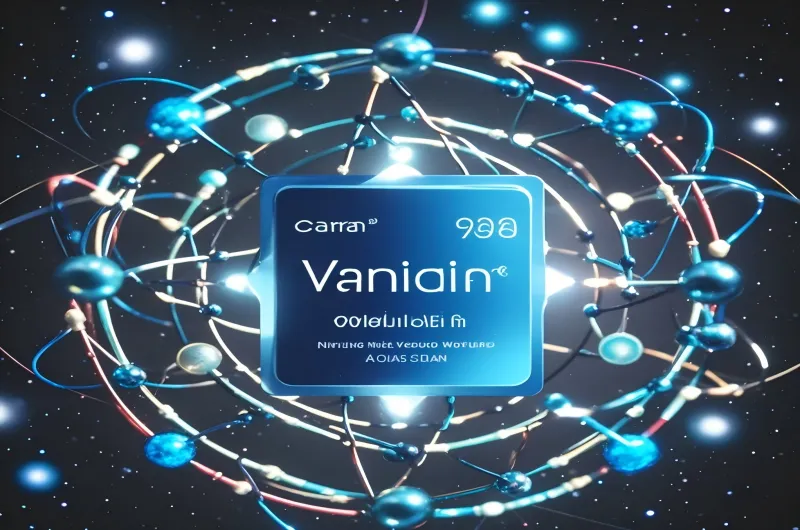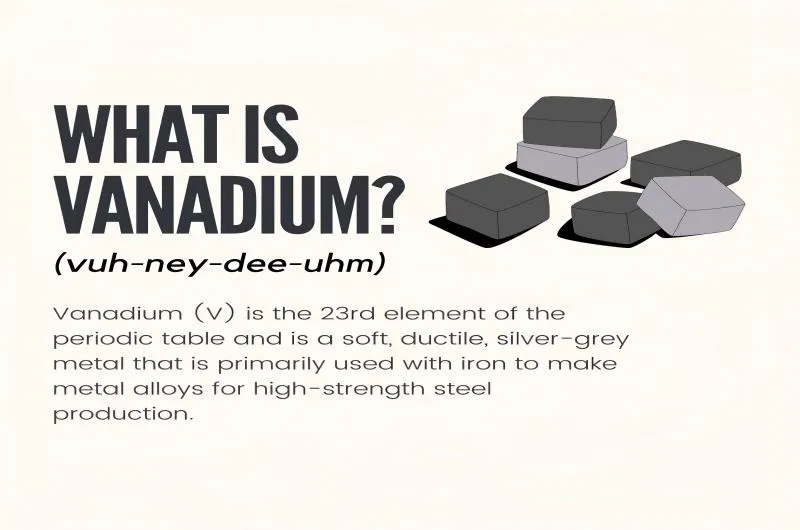BY  GENN
GENN
2024/12
Blog
Who Should Not Take Vanadium?
Vanadium is a trace mineral that plays essential roles in various biological processes within the human body. This transition metal is found in small amounts in certain foods like mushrooms, shellfish, and black pepper. Additionally, vanadium is sometimes used in dietary supplements due to its potential health benefits.
High-Risk Groups
Individuals with Kidney Disease
Vanadium, a transition metal often found in some foods and supplements, can have detrimental effects on kidney function, especially in individuals already suffering from kidney disease. Research suggests that high levels of vanadium may impair renal function by inducing oxidative stress and inflammation within the kidneys. This can lead to further damage to already compromised kidneys and exacerbate existing renal issues.
Moreover, vanadium is primarily excreted through the kidneys, putting additional strain on these organs in individuals with compromised renal function. For those with kidney disease, the risks associated with consuming vanadium supplements or foods high in vanadium content are significant. Excessive intake of vanadium can lead to further deterioration of kidney function, potentially worsening symptoms and complications associated with kidney disease.
Additionally, individuals with impaired kidneys may struggle to effectively filter out excess vanadium from their bloodstream, leading to a buildup of this metal within the body. This accumulation can further burden the already compromised kidneys and contribute to progressive renal damage over time.
Pregnant Women and Nursing Mothers
The impact of vanadium on pregnancy and breastfeeding is an important consideration for expecting mothers and nursing women. Studies have shown that high levels of vanadium exposure during pregnancy can potentially cross the placental barrier and affect fetal development. Furthermore, research suggests that vanadium may interfere with the hormonal balance essential for maintaining a healthy pregnancy, posing risks to both maternal health and the developing fetus.
Similarly, breastfeeding mothers need to be cautious about their vanadium intake, as this metal can be transferred through breast milk to nursing infants. Risks associated with consuming vanadium during pregnancy and lactation periods include potential developmental abnormalities in newborns due to a disrupted intrauterine environment caused by excessive exposure to this metal.
Moreover, for nursing mothers, ingesting high amounts of vanadium-rich foods or supplements can lead to adverse effects on infant health through breast milk transmission. It is vital for pregnant women and nursing mothers to seek guidance from healthcare providers before considering any form of vanadium supplementation or significantly altering their dietary intake containing this element.
Diabetes Patients
When it comes to diabetes patients, the interaction between vanadium and blood sugar levels is an important consideration. Vanadium has been studied for its potential to mimic insulin in the body, which can lead to improved glucose uptake by cells. While this may sound beneficial for individuals with diabetes, it’s crucial to understand that the effects of vanadium on blood sugar levels can be unpredictable.
Some studies have shown positive outcomes in terms of blood glucose control, but others have indicated no significant impact or even potential harm.
For diabetic individuals considering vanadium supplementation, there are potential complications that must be taken into account. One concern is the risk of hypoglycemia, especially if vanadium leads to a sudden drop in blood sugar levels. This could be particularly dangerous for those who rely on precise insulin dosing to manage their condition.
Additionally, long-term use of vanadium may pose risks of developing insulin resistance or affecting other metabolic processes in the body, further complicating diabetes management.
Thyroid Troubles
Individuals with thyroid disorders need to be wary of how vanadium can impact their already delicate hormonal balance.
Research suggests that vanadium may interfere with thyroid function by inhibiting iodine uptake and disrupting hormone synthesis. This disruption could potentially worsen existing thyroid conditions or trigger new issues for those predisposed to such disorders.
The possible risks associated with vanadium intake for individuals with thyroid conditions are multifaceted. In addition to its interference with iodine absorption and hormone production, vanadium’s pro-oxidant properties might contribute to oxidative stress within the thyroid gland. This oxidative stress can potentially exacerbate inflammation and damage thyroid tissue over time, leading to further complications in managing thyroid disorders.
Interactions with Blood Thinners
Taking vanadium supplements alongside blood thinners can potentially lead to interactions that may affect the effectiveness of both medications. Blood thinners, also known as anticoagulants, are commonly prescribed to reduce the risk of blood clotting.
Vanadium, on the other hand, has been suggested to have anticoagulant properties by inhibiting platelet aggregation and enhancing fibrinolysis. When combined, the dual antiplatelet effects of both vanadium and blood thinners may increase the risk of bleeding episodes in individuals.
This heightened effect on blood clotting mechanisms could result in prolonged bleeding time or excessive bruising. Therefore, it is crucial for individuals who are taking blood thinners to consult with their healthcare provider before incorporating vanadium supplements into their regimen to prevent any potential adverse effects.
Interactions with Antidiabetic Drugs
The interaction between vanadium supplements and antidiabetic drugs is another critical consideration for individuals managing diabetes. Vanadium has been studied for its potential glucose-lowering effects, which could enhance the action of antidiabetic medications such as insulin or oral hypoglycemic agents. However, this synergy between vanadium and antidiabetic drugs may lead to hypoglycemia (low blood sugar levels) if not carefully monitored.
The combined effect of these compounds on glucose metabolism could potentiate the risk of experiencing dangerously low blood sugar levels. It is imperative for diabetic patients taking antidiabetic medications to work closely with their healthcare provider when contemplating adding vanadium supplements to their treatment plan to avoid any undesirable outcomes.
Lifestyle Factors to Consider
Dietary Considerations for Those Considering Taking Vanadium Supplements
When looking into the impact of high-vanadium foods on health, it’s crucial to understand that while vanadium is naturally present in many foods, its concentration can vary significantly. Foods rich in vanadium include mushrooms, shellfish, parsley, dill, and whole grains.
Those who are contemplating adding vanadium supplements to their diet should be mindful of their overall daily intake of this trace mineral. Excessive consumption of high-vanadium foods alongside supplements may lead to an accumulation of vanadium in the body beyond safe levels.
Impact of High-Vanadium Foods on Health
High intake of vanadium through food sources has been linked to potential adverse effects on health. While vanadium is essential in small amounts for various biological functions, excessive levels can be harmful. Some studies suggest that an overdose of vanadium may disrupt normal cellular processes and contribute to oxidative stress within the body.
Individuals with certain medical conditions or those at risk for kidney issues should pay particular attention to their consumption of high-vanadium foods as part of a balanced diet. Incorporating a diverse range of nutrients is crucial for maintaining optimal health, and this includes being mindful of the presence of trace minerals like vanadium in our diets.
When contemplating increasing one’s intake through supplements or dietary changes, consulting with a healthcare provider or nutritionist is highly recommended. This can help individuals make informed decisions about incorporating vanadium into their diet safely and effectively while considering any possible risks associated with high-vanadium foods.










